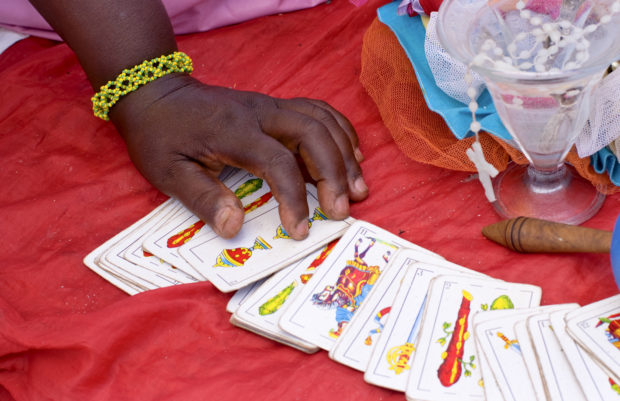New Orleans’ Residents Return to Traditional Healing as Cases of COVID-19 Continue to Grow
Esohe Osabuohien | eco2132@columbia.edu

The people of New Orleans are no strangers to crisis. Over the last 15 years, they have been pummeled by hurricanes, unusual concentrations of cancer cases and, now, the onslaught of the novel coronavirus. The impact of coronavirus on the state of Louisiana and its residents has been amplified as a result of their preexisting environmental and health concerns.
The statistics are staggering. In Louisiana, African American residents make up over 50 percent of COVID-19 related deaths, despite being only 33 percent of the state’s population. In addition, the Indian Health Service reports an overall 10 percent increase in positive cases throughout the indigenous population. However, environmental activists believe that the issues they are currently facing are exacerbated by Louisiana’s long-standing environmental crisis.
But just as the New Orleans community has its own challenges, it also has its own remedies. In addition to gloves and face masks and social distancing and COVID-19 testing, it also has plant medicines and traditional spirituality that have sustained the community for generations.
Angela Comeaux is a clinical research nurse and member of the Bvlbancha Collective – an indigenous and ally cooperative that makes plant medicine, regalia and focuses on the support of indigenous communities. Before the outbreak, the collective used to convene twice a week for ceremonial services and prayer and to make traditional medicine. Now their sessions have gone virtual, with prayer taking place every Saturday and Sunday in their respective homes.
“Spirituality is very nature-oriented,” Comeaux said.
All of the medicine and elixirs that they sell are locally sourced, using only what is available and in season. This has also produced some challenges, especially during the time of COVID-19. Comeaux notes that their store sold out of the herb Spanish Needle, a plant that carries anti-malaria properties and has been used to treat the flu and other infections. Additionally, she’s noticed an increase in orders for medicinal herbs with immune-boosting properties.
Prior to COVID-19, the collective would primarily tend to the immediate neighboring communities. However, with the strengthening of social distancing rules, and demands for preventive herbal remedies, they have taken to social media to not only confirm orders but to check-in on group members that might be feeling isolated or are in need of support due to recent layoffs.
Technology is not traditionally used in the spiritual practices of indigenous communities. In the past, many tribal elders have shunned the use of technology as it counters the traditional practices and potentially leaves sacred ceremonies vulnerable to being shared with non-members.
Alternatively, for other traditionally private religions, technology has been able to assist practitioners to go beyond connecting with fellow members but provide services to those not a part of their faith as well.
Janet Evans, who is widely referred to as Mama Sula, is a priestess of Mami Wata, a water spirit associated with West African Vodun, folk Catholicism and Louisiana Voodoo. She is also a student of the orishas, deities of the Yoruba tradition, and provides services such as spiritual cleansings and readings based on the traditions at the Temple of Light (Ile de Coin-Coin), home for the Mami Wata shrine which honors ancestral femininity, in New Orleans.
However, since the onset of COVID-19 Mama Sula has had to take her services online and over the phone. Communicating with clients and attendees of the Temple of Light in virtual spaces is not new for Mama Sula; she hosts a weekly class on Facebook Live for children and their parents, educating them through story and song on spiritual baths, the act of pouring libations – the ritual pouring of a liquid as an offering to a god or ancestor – and Asase Yaa, or Mother Nature/ Earth goddess of fertility of the Asante people in Ghana. But what is new for her is the lack of new clients and income coming in.
“Putting out $100 for a reading may not be a priority for them, it’s more of a luxury at this time,” Mama Sula said.
Most of Mama Sula’s services average about $150, with business blessings starting at $300 and up depending on the service performed. She states that prior to COVID-19, she would make anywhere from $100 to $1,500 on a good week where she could see three or six clients a day.
Although business is slow for Mama Sula right now, she remains hopeful about the current state of things in New Orleans and looks forward to meeting with clients at the temple again in person.
“These last four weeks have been remarkable for me,” Mama Sula said. She has found that the pause created by coronavirus has prompted her to source her own natural medicine and start a medicinal farm. “We work really hard, and it feels nice to get some relief and be able to sit down and create,” Mama Sula continued.
On the other hand, while the opportunity to assist more people in need and connect with other members of the indigenous community has presented itself to Angela Comeaux and other members of the Bvlbancha Collective, they are still plagued with growing environmental concerns, such as rising sea levels and wetland erosion negatively impacting the herbs and plants, like river cane, often used during ceremonies and for making medicine. Then there is COVID-19, which will force many indigenous communities to rethink the ways in which their pipe and sweat lodge ceremonies can safely operate during the time of coronavirus.
“Indigenous culture is going to have to adapt, but it’s been adapting since the beginning of time. We just don’t know what that looks like yet,” Comeaux said.
